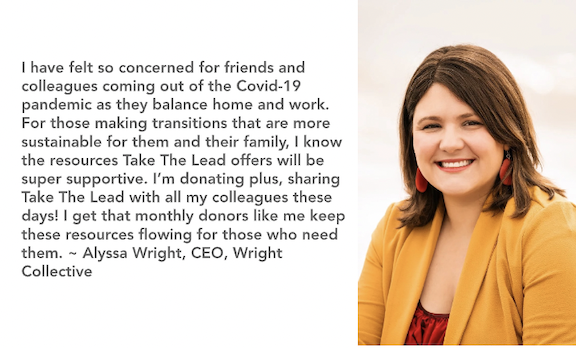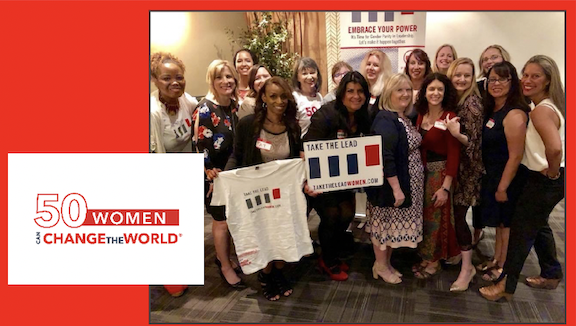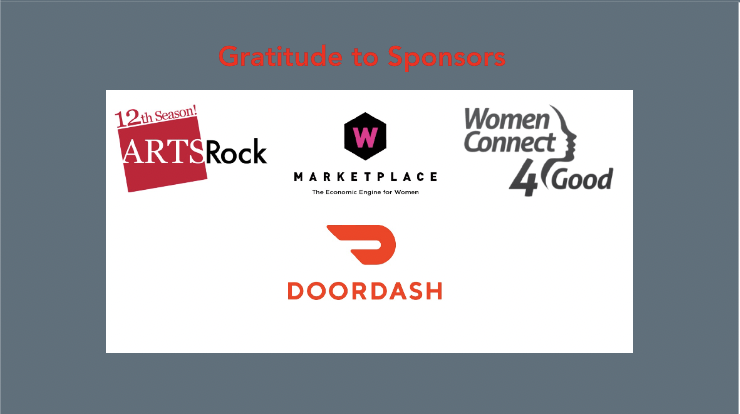Women Asking, Women Giving: 3 Ways to Maximize Impact of Philanthropy
Issue 176 — August 30, 2021
If you want to see me break out into a cold sweat instantly, just say the word “event.” Every time an organization with which I’m involved has an event, my first reaction is “No.”
Not surprisingly, since I’ve been leading nonprofit organizations almost my entire career, and thus on the asking end of the fundraising equation, that probability of cold sweat occurs with some frequency.
For one thing, I’m always very aware that philanthropists could be spending their money on any number of causes or material goods that they would enjoy. But they choose to share their wealth instead, or at least in addition to. That’s a big thing.
The example set by MacKenzie Scott, whose transformational unrestricted gifts to hundreds of organizations, with a heavy tilt toward those focused on social justice, stands out. But even more, her gifts by their size and hands-off approach (I’ll use her word “cedes”) authority to those who spend their professional lives addressing the needs their organizations were created to serve.
But most people can’t give at that level. It is incumbent on nonprofit organizations, or rather social profit organizations in Take The Lead board chair Dr. Nancy O’Reilly’s preferred terminology, to provide a variety of ways for people to support them.
Which brings me back to events. They are important because people love the sense of community that comes from participating with others who share their values, and to engage in friendraising as well as fundraising. They are also an opportunity for sponsors to show their support publicly.
For example, Take The Lead hosted a benefit concert for Women’s Equality Day featuring internationally acclaimed pianist and composer Marina Arsenijevic, accompanied by violinist Sonia Lee, tenor John Riesen (who brought me to tears with his rendition of “Isle of Hope, Isle of Tears”) and the West Point Band. A special welcome from actor and activist Rhodessa Jones set a good tone and we had started with a slide deck and video with information about Take The Lead so that we stayed on point and on mission!
If you haven’t yet viewed the concert, you are in luck! It will continue to stream for a short time. Marina premiered two original pieces, “Fire and Soul” written just for us and her updated rendition of “Flight of the Bumblebee” with a hip hop beat, in addition to classical works by Chopin and my husband’s favorite Gershwin, “Rhapsody in Blue,” plus popular tunes such as Celine Dion’s “The Power of Love.” What I loved most is that Marina so thoughtfully spoke about how each of the eight pieces she played relates to women’s equality.
Take The Lead editorial director Michele Weldon posted this report of the concert on our blog.
There are a few things I’ve learned from being on the asking end of philanthropy. As women become increasingly able and willing to give to charitable causes and movements, whether that funding goes to events, unrestricted gifts, or projects, I encourage donors to consider these three observations:
It is much easier to raise money for women who are victims than to make sure they never have to be victims. Domestic abuse and poverty are huge problems and empathetic people will naturally want to address them. Yet there will never be enough money to fix them all after the fact. And prevention is always better than cure. The only lasting and systemic fix is to fund ladders up not just safety nets below. That is exactly why I personally decided to put my energy into developing women’s leadership and elevating women’s intentions to lead.
2. Philanthropy has increasingly had to step in and fund things that government no longer does. Schools lack funding for arts and music, and are often now without physical education, without libraries. How do we make the policy changes or the priority changes to allow public schools to be what they were intended — the starting block for every citizen. Democracy can’t survive if the majority of children start out at a disadvantage. Again, prevention is far better than incarceration or remediation and less expensive too.
3. It’s important not to be derailed by the buzzword of the day. About the time there is traction on one strategy, somebody comes up with a new sexy sounding buzzword and we all tootle off after the shiny object. The biggest problem for nonprofits that do the heavy lifting of systemic change, nipping social problems at the root instead of rescuing people after the fact, is that it’s so hard to get substantial multi-year funding for the bread and butter stuff. That includes evaluation, thought leadership, and investments in technology upgrades.
While I write this, I’m watching the fantastic PBS special “Wicked in Concert.” Every few minutes the program is interrupted for a fundraising pitch. It’s the broadcasting network’s equivalent of our concert — a point in time when supporters are focused together as a community on a cause they believe in.
Much as I quake at the thought of events, I know how important they are and how worth the effort that we put into them. Thanks again to those who supported the Women’s Equality Day concert. If you haven’t had a chance to watch it yet, do yourself a favor. Get a ticket, use your Door Dash gift card to treat yourself to a libation and snack of your choice, and give yourself the gift of music. You’ll be so glad you did.
GLORIA FELDT is the Cofounder and President of Take The Lead, a motivational speaker and expert women’s leadership developer for companies that want to build gender balance, and a bestselling author of five books, most recently Intentioning: Sex, Power, Pandemics, and How Women Will Take The Lead for (Everyone’s) Good. Former President of Planned Parenthood Federation of America, she teaches “Women, Power, and Leadership” at Arizona State University and is a frequent media commentator. Learn more at www.gloriafeldt.com and www.taketheleadwomen.com. Tweet Gloria Feldt.






